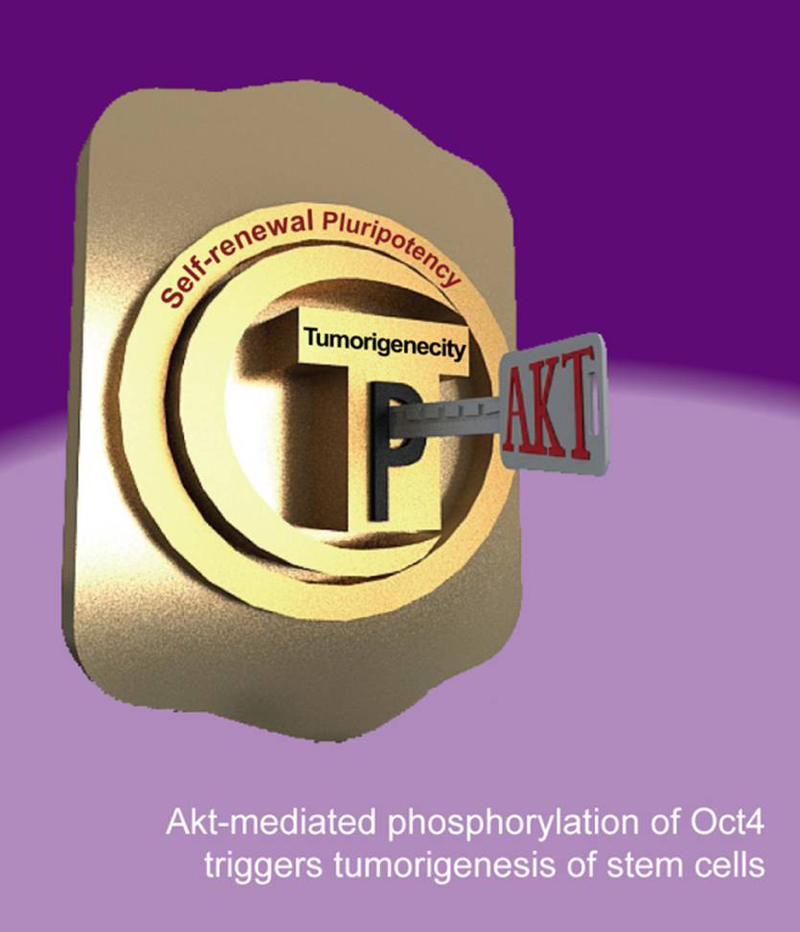Signaling via the Akt serine/threonine protein kinase plays critical roles in the self-renewal of embryonic stem cells and their malignant counterpart, embryonal carcinoma cells (ECCs). A research team led by Prof. Ying-Jie Wang at the State Key Laboratory for Diagnosis and Treatment of Infectious Diseases, the First Affiliated Hospital of School of Medicine, Zhejiang University discovered that in ECCs, Akt phosphorylated the master pluripotency factor Oct4 at threonine 235, and that the levels of phosphorylated Oct4 in ECCs correlated with resistance to apoptosis and tumorigenic potential. Phosphorylation of Oct4 increased its stability, and facilitated its nuclear localization and its interaction with Sox2, which promoted the transcription of the core stemness genes POU5F1 and NANOG. Furthermore, in ECCs, unphosphorylated Oct4 bound to the AKT1 promoter and repressed its transcription. Phosphorylation of Oct4 by Akt resulted in dissociation of Oct4 from the AKT1 promoter, which activated AKT1 transcription and promoted cell survival. Therefore, a site-specific, post-translational modification of the Oct4 protein orchestrates the regulation of its stability, subcellular localization and transcriptional activities, which collectively promotes the survival and tumorigenicity of ECCs. The above findings were published in Molecular Cell on October 4, 2012, and subsequently highlighted in Nature China and Science Signaling.
